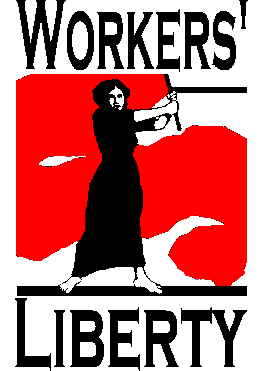
 |
Workers' Liberty'the emancipation of the working class must be the act of the working class'Workers' Liberty Australia |
back to front page of this issue
reviewed by Paul Hampton
This book is a pseudo-debate
between Peter Taaffe of the Socialist Party (formerly-Militant) in Britain and
Doug Lorimer of the Australian Democratic Socialist Party (DSP).
It is not a real discussion because neither group has openly
published each otherÕs views, nor represented their opponents accurately, nor
as far as I know debated their differences in front of an audience. (This was
true at the time of writing; they did in fact publicly debate in Melbourne recently
Š ed.)
The book is also unlikely to stymie the recent rash of Castro-worship
in the Scottish Socialist Party, with whom Taaffe maintains a strained relationship.
The DSP, following the lead of the American SWP, reject Trotsky's permanent
revolution as the guiding theory of the Russian revolution of 1917, in which
the working class was the crucial agent of the socialist revolution, preferring
Lenin's outmoded formula of a "democratic dictatorship". Applied to Cuba, the
result is a largely uncritical endorsement of Castro's leadership, and the dressing
up of Cuba since 1959 as a socialist state. For his part, Taaffe claims to accept permanent revolution,
and is thus more critical of Castro. Yet Taaffe shares fundamentally the same
framework as Lorimer, believing that Russia under Stalin, China under Mao and
Cuba under Castro were or are deformed workers' states, historically more progressive
than capitalism, and in some sense (nationalised property, planned economy,
welfare gains, absence of a bourgeois class) part of the socialist alternative
(p.6-7). Just as the DSP uncritically embrace Castro, so the Committee for a
WorkersÕ International (in a pamphlet by Saunois) construct a mythical Guevara
with which to associate itself. Therefore, despite some telling points, Taaffe
never manages to nail Lorimer's Stalinist politics.
Why isn't Cuba socialist? The 1959 revolution was not made by the Cuban working class
but led by the guerrillas of the July 26th Movement (J26M). There were no Soviets
in Cuba in 1959, (as there were in 1933), and the general strike the previous
year had been a failure. There were no signs of workers seizing the factories,
establishing committees for workers' control, nor a proliferation of independent
unions challenging the Batista regime with the organs of workers' power. These
flowered in abundance in Russia in 1917, and gave the Bolsheviks - a conscious
socialist party - the majority support in order to consummate the socialist
revolution in October. By comparison the J26M was neither rooted in the working class,
nor advanced a socialist programme. The Castro regime, pushed into a corner
by US imperialism, did indeed overthrow capitalism in Cuba after 1959, but only
to construct a form of exploiting society on the model of the Stalinist USSR.
Castro constructed a one-party system in which only supporters or members of
the Cuban Communist Party can stand in elections, where the trade union movement
was purged and then bound hand-and-foot to the state, and where even groups
opposed to the US blockade cannot exist legally. The much vaunted economy and welfare system in Cuba, already
one of the richest countries in Latin America before 1959, may have been on
a par with the best of equivalent capitalist states (such as Costa Rica and
Taiwan), but it depended on an annual $5 billion subsidy from the USSR, as well
as on the exploitation of Cuban workers and peasants. Proof of this came with
the withdrawal of Russian support in 1989, and the subsequent collapse of the
economy, only abated by the recent expansion of tourism and business ventures. In foreign policy, the Cuban state has whistled to the tune
of the USSR, supporting the invasion of Czechoslovakia in 1968 and the crushing
of Solidarnosz in 1981. In Africa, Cuba switched from the Eritrean national
liberation movement to supporting the Derg in Ethiopia. Closer to home, Castro
failed to condemn the slaughter of students in Mexico in 1968, gave his stamp
of approval to the recently ousted PRI-regime, even when it committed electoral
fraud in 1988 to stay in power, and failed to back the Zapatistas. Socialists self-evidently support Cuba's right to self-determination,
and therefore oppose the US blockade, but this does not commit us to silence
on Castro's anti-working class policies at home or abroad. Taaffe alludes to
some of this, but lacks the theoretical clarity necessary to understand Cuba
today. Readers will search in vain for an explanation of how the surplus
is extracted, or the real nature of the ruling bureaucracy. A giveaway is the
heading for chapter 4, "Is there a privileged elite?" in which the Castro leadership
has all the attributes of a ruling class, yet Taaffe cannot bring himself to
call it one. The book expresses a "workers' statism" that dare not speak its
name. Taaffe avoids the fundamental question about the Cuban revolution for
socialists: namely how can a "workers' state" have been created without the
active intervention of the working class, because he basically agrees with Lorimer
that it is possible - indeed he believes it occurred in Cuba in 1959-61. He thus overturns Marx's proposition that "the emancipation
of the working class must be the act of the working class itself", and thereby
throws out the only basis on which socialism can be reconstituted in the modern
world. In fact, this book gives other clues to the strange politics of the Militant
tradition. For example, Taaffe implies that Hugo Chavez, the Venezuelan leader
who recently orchestrated the oil price rises through the OPEC cartel, might
be the new Fidel Castro (p.23). He also claims that it was wrong to support
the Russian invasion of Afghanistan in 1980, a backhanded form of political
accounting which belies the last twenty years in which his tendency has done
precisely that (p.8). The book is therefore a damning monument to the weaknesses
of the left rather than a socialist critique of Cuba.